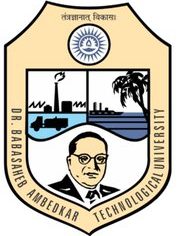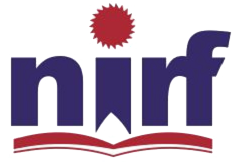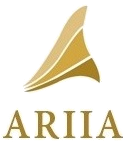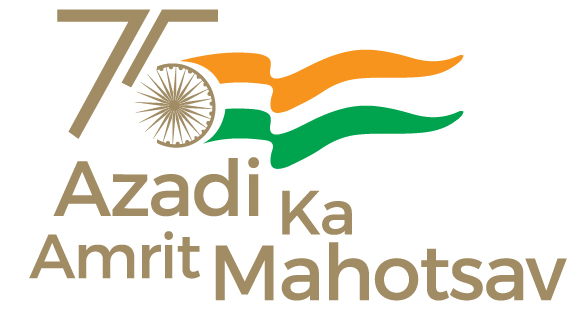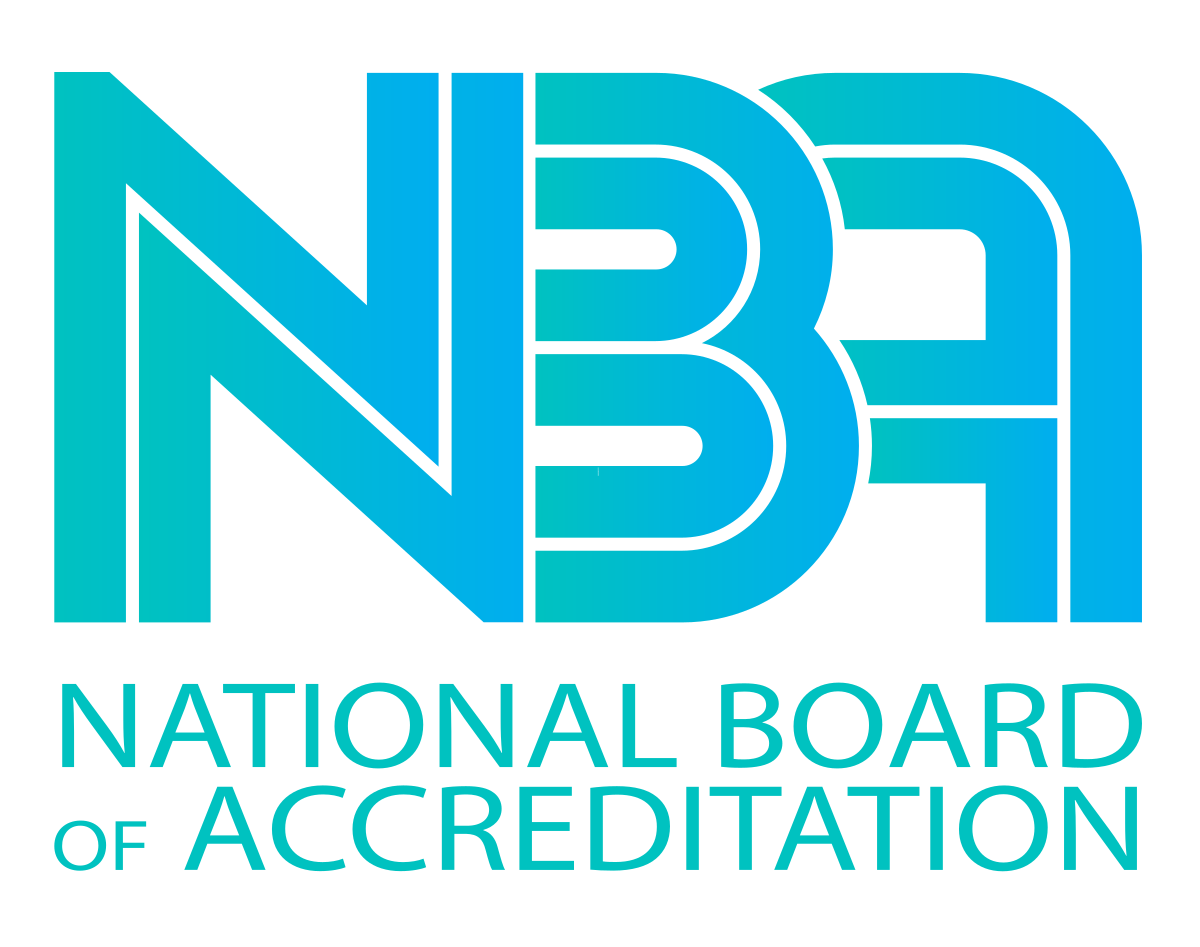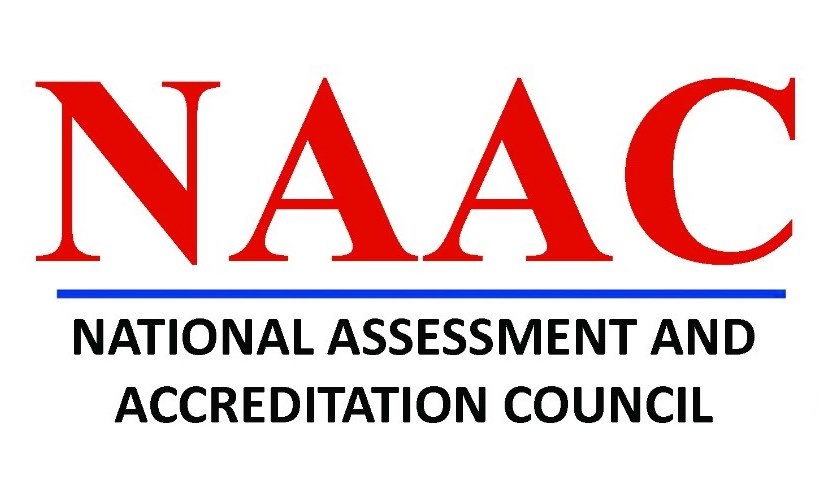Internal Quality Assurance Cell (IQAC)
In pursuance for performance evaluation, assessment and accreditation and quality up-gradation, the Dr. Babasaheb Ambedkar Technological University has established the Internal Quality Assurance Cell (IQAC). Since quality improvement is a continuous process, the IQAC will work towards realization of the goals of quality enhancement and sustenance. The prime task of the IQAC is to develop a system for conscious, consistent and catalytic improvement in the overall performance of the university.
- To develop a mechanism to promote conscious, consistent and catalytic action plans to improve the academic and administrative performance of the institution.
- To promote institutional quality enhancement and sustenance through the internalization of quality culture and institutionalization of the best practices.
IQAC shall evolve a mechanism and procedures for
a) Ensuring timely, efficient and progressive performance of academic, administrative
and financial units;
b) Adoption of relevant and quality academic and research programmes;
c) Ensuring equitable access to and affordability of academic programmes for various
sections of the society;
d) Optimization and integration of modern methods of teaching and learning;
e) Ensuring credible assessment and evaluation processes;
f) Ensuring proper allocation, adequacy and maintenance of support structure and
services; and
g) Sharing of research findings and networking with other institutions in India and
abroad.
Some of the functions expected of the IQAC are:
a) Development and application of quality benchmarks;
b) Setting parameters for various academic and administrative activities of the
institution;
c) Facilitating the creation of a learner-centric environment conducive to quality
education and faculty development to adopt the required knowledge and technology
for participatory teaching and learning process;
d) Collection and analysis of feedback from all the stakeholders on quality-related
institutional processes;
d) Dissemination of information on various quality parameters to all the stakeholders;
e) Organization of intra- and inter-institutional workshops and seminars on qualityrelated themes and promotion of quality circles;
f) Documentation of various programmes/activities leading to quality improvement;
g) Acting as a nodal agency of the institution for coordinating quality-related activities,
including adoption and dissemination of the best practices;
h) Development and maintenance of institutional database through MIS for the purpose
of maintaining and enhancing institutional quality;
i) Periodical conduct of Academic and Administrative Audits along with their followup activities; and
j) Preparation and submission of the Annual Quality Assurance Report (AQAR) as per
the guidelines and parameters of NAAC.
IQAC contribute to
a) Ensuring clarity and focus in the institution’s march towards quality enhancement;
b) Ensuring internalization of quality culture;
c) Ensuring enhancement and coordination among the various units and activities of
the institution and institutionalizing all good practices;
d) Providing a sound basis for decision-making to improve institutional functioning;
e) Acting as a dynamic system for quality changes in the university; and
f) Building a sound methodology for documentation and internal communication.
Head of Institutions (vice-chancellor): Dr. K. V. Kale (chairman)
Senior Administrative Officers
- Registrar: Dr. B. F. Jogi (Member)
- Finance officer: Dr. S.V.Khobragade (Member)
- Controller of Examinations: Dr. V. S. Sathe (Member)
- Librarian: Mr.Ajay Palkar (Member)
- Head University Computer Center: Dr. S. M. Jadhav (Member)
Teachers to represent all the levels
- Dean, Academic/Head, ExTC: Dr. S. L. Nalbalwar
- Dean, Student’s Welfare: Dr. V G Sargade
- Dean, R&D :Dr. S M Pore
- Head, Dept. of Mechanical Engg.: Dr. Neeraj Agarwal
- Head, Dept. of Electrical Engg.: Mr. M. F. A. R. Satarkar
- Head, Dept. Civil of Engg.: Dr. S. R. Bhagat
- Head, Dept. of Computer Engg.: Dr. L.D. Netak
- Head, Dept. of IT: Dr. S. R. Sutar
- Head, Dept. of Chemical Engg: Dr. A. R. Chavan
- Head, Dept. of Petrochemical Engg: Dr. S. S. Metkar
- Head, Dept. of Physics: Dr. S. G. Dahotre
- Head, Dept. of Chemistry: Dr. P. B. Lokhande
- Professor Mech. Engineering: Dr. M. Sadaiah
- Associate Professor in ExTC: Dr. N. S. Jadhav
- Assistant Professor in IT : Dr. V.J. Kadam
- Assistant Professor in MED : Dr. D.B.Waghmare
- Head, English Dept.: Dr. A. P. Shesh
- Local Society/Trust: Dr. Mandar Mohan Mehta (President, Rotary Club)
- Students Ms. Siddhi B Chaudhari (TY B.Tech. student)
- Alumni: Mr. Ramji N Shinde (Team Lead-Sauce Consulting)
- Employer: Dr. Munir Sayed (GM, Reliance Jio)
- Industrialists: Mr. Sachin Sangamnerkar (Urja Disha Boiler Tech, Pune)
- Stakeholders: Mr. Yogesh Patil (DuFlon Industries Ltd Mahad)
Coordinator, IQAC: Dr. M. S. Tandale (Member-Secretary)
1. EXECUTIVE SUMMARY
1.1 INTRODUCTION
1.2 Strength, Weakness, Opportunity and Challenges(SWOC)
1.3 CRITERIA WISE SUMMARY
2. PROFILE
2.1 BASIC INFORMATION
2.2 ACADEMIC INFORMATION
2.3 EVALUATIVE REPORT OF THE DEPARTMENTS
Extended Profile
- GR_Post Sanction_04_03_2021 Padancha Aakrutibandh
- GR_Post Sanction_18_09_2019 Padanchi Nirmiti karnyas manyata denebabat Gr
- GR_Post Sanctioned_01-04-2004_17-18_18-19_19-20
4. Quality Indicator Framework(QIF)
Criterion – I: Curricular Aspects
1.1 Curriculum Design and Development
1.1 additional information for pos and peo’s
1.1.2 Minutes Of the Academic Council Meeting
1.1.2 Details of Programme syllabus revision in last 5 year
1.1.3 Programme/ Curriculum/ Syllabus of the courses
1.1.3 Minutes of the Boards of Studies/ Academic
Council meetings with approvals for these courses
1.2 Academic Flexibility
1.2.1Minutes of relevant Academic Council/BOS
meeting
1.3 Curriculum Enrichment
1.3.2 Value-Added Courses Student Enrollment List
1.3.2 Additional Information
1.4 Feedback System
1.4.1 feedback for design and review of syllabus
1.4.2 Feedback processes of the institution.
Criterion – II: Teaching, Learning and Evaluation
2.1 Student Enrollment and Profile
2.1.1 Additional Information
2.2 Catering to Student Diversity
2.2.2 Additional information
2.3 Teaching- Learning Process
2.3.1 Workshop Conducted for Student
2.3.2 Teachers use ICT enabled tools including online resources for effective teaching
2.3.3 Year wise, number of students enrolled and full time teachers on roll.
2.3.3 Informatiom of mentor_mentee ratio
2.3.3: Ratio of students to mentor for academic and other related issues (Data for the latest completed academic year)
2.4 Teacher Profile and Quality
2.4.1 year wise full time teachers and sanctioned posts
2.4.1 faculty members authenticated by the Head of HEI
2.4.3 Teachers including their PAN, designation, dept and experience details
2.4.4 E-copies of award letters
2.5 Evaluation Process and Reforms
2.5.1 Programme’s and date of last semester and date of declaration of results
2.5.2 Number of complaints and total number of students
2.5.3 Year wise number of applications, students and revaluation cases
2.5.4 Current Manual of examination automation system
2.6 Student Performance and Learning Outcomes
2.6.3 list of Programmes and number of students passed and appeared in the final year examination
2.6.3 Additional Information
2.7 Student Satisfaction Survey
Criterion – III: Research, Innovations and Extension
3.1 Promotion of Research and Facilities
3.1.2 Minutes of the relevant bodies of the University
3.1.5 List of facilities provided by the university and their year of establishment
3.1.5 Videos and Geotagged photographs
3.1.6 E-version of departmental recognition award letters
3.2 Resource Mobilization for Research
3.2.1 E-copies of the grant award letters for research projects sponsored by non-government
3.2.2 E-copies of the grant award letters for research projects sponsored by government
3.2.3 Supporting document from Funding Agency
3.3 Innovation Ecosystem
3.3.3 E- copies of award letters
3.4 Research Publications and Awards
3.4.1 Research Publications and Awards
3.4.2 E- copies of the letters of awards
3.5 Consultancy
3.5.2 : Revenue generated from consultancy and corporate training during the last five years
3.6 Extension Activities
3.6.4 Average percentage of students participating in extension activities listed at above during the last five years(12).
3.7 Collaboration
3.7.1 Number of Collaborative activities for research, faculty exchange, student exchange.
Criterion – IV: Infrastructure and Learning Resources
4.1 Physical Facilities
4.1.1 The institution has adequate facilities for teaching – learning. viz., classrooms, laboratories,
computing equipment, etc.
4.1.2 The institution has adequate facilities for cultural activities, yoga, games (indoor, outdoor) and
sports. (gymnasium, yoga centre, auditorium, etc.)
4.2 Library as a Learning Resource
4.2.2 Institution has access to the following:
1. e-journals
2. e-ShodhSindhu
3. Shodhganga Membership
4. e-books
5. Databases
6. Remote access to e-resources
4.2.2Library Expenditure Highlighted Audit Report
4.2.4 Percentage per day usage of library by teachers and students ( foot falls and login data for
online access) during the last completed academic year
4.3 IT Infrastructure
4.3.5 Institution has the following facilities for E-content development
4.4 Maintenance of Campus Infrastructure
4.4.1 Average percentage expenditure incurred on maintenance of physical facilities and academic support facilities excluding salary component during the last five years
4.4.1 All PO maintenance (5 Years)
4.4.1 All Highlighted Audited Statements (2017-18 to 2021-2022)
4.4.1 All Highlighted Budget Allocation (2017-18 to 2021-2022)
4.4.1 All Highlighted Expenditure on Infrastructure Augmentation in Audited statement
Criterion – V: Student Support and Progression
5.1 Student Support
5.1. 1 Scholarship 2017 – 2022
5.1.3 Following Capacity development and skills enhancement activities are organised for improving
students capability 1. Soft skills 2. Language and communication skills 3. Life skills (Yoga, physical fitness, health and hygiene) 4. Awareness of trends in technology
5.1.4 The institution adopts the following for redressal of student grievances including sexual harassment and ragging cases
5.2 Student Progression
5.2.1 Average percentage of students qualifying in state/national/ international level examinations
during the last five years (eg: IIT-JAM/CLAT/ NET/SLET/GATE/ GMAT/CAT/GRE/ TOEFL/
Civil Services/State government examinations, etc.)
5.2.2 Average percentage of placement of outgoing students during the last five years
5.2.3 Percentage of student progression to higher education (previous graduating batch)
5.3 Student Participation and Activities
5.3.3 Average number of sports and cultural events / competitions organized by the institution per year
5.4 Alumni Engagement
Criterion – VI: Governance, Leadership and Management
6.1 Institutional Vision and Leadership
6.1.2: The effective leadership is reflected in various institutional practices such as decentralization and participative management.
6.2 Strategy Development and Deployment
6.2.3: Institution Implements e-governance covering following areas of operation
- Administration
- Finance and Accounts
- Student Admission and Support
- Examination
6.3 Faculty Empowerment Strategies
6.3.1: The institution has a performance appraisal system, promotional avenues and effective welfare measures for teaching and non-teaching staff.
6.3.2: Average percentage of teachers provided with financial support to attend conferences / workshops and towards membership fee of professional bodies during the last five years.
6.3.4: Average percentage of teachers undergoing online/ face-to-face Faculty Development Programmes (FDP)during the last five years (Professional Development Programmes, Orientation / Induction Programmes, Refresher Course, Short Term Course ).
6.4 Financial Management and Resource Mobilization
6.4.1 Institutional strategies for mobilisation of funds and the optimal utilisation of resources
6.4.4: Institution conducts internal and external financial audits regularly
6.5 Internal Quality Assurance System
6.5.2: Institution has adopted the following for Quality assurance
Criterion – VII: Institutional Values and Best Practices
7.1 Institutional Values and Social Responsibilities
7.2 Best Practices
7.3 Institutional Distinctiveness
5. CONCLUSION
6.ANNEXURE
AQAR 2021-22
1.1.2 & 1.2.2 BOS and Academic council (Minutes of Meetings)
- Academic Council
- BOS minutes of Meetings:
Civil Engineering
Computer Engineering
Information Technology
Electrical Engineering
Chemical Engineering
Petro Chemical Engineering
Mechanical Engineering
1.1.3 & 1.2.1 syllabus all dept
- Civil Engineering : First, Second and Third Year, Final Year
- Computer Engineering: First, Second, Third, Final Year
- Information Technology :First, Second, Third, Final Year
- Electrical Engineering: Second, Third, Final Year
- Electronics and Telecommunication Engg: Second Year, Third & Final Year
- Chemical Engineering: Second Year
- Petro Chemical Engineering: Second Year ,Value added 1, Value added 2,Value added 3,Value added 4
- Mechanical Engineering: Second, Third, Final Year
- First Year :
1.3.2 & 1.3.3 roll list
Civil Engineering: First, Second, Third, Final Year
Computer Engineering: First, Second, Third, Final Year
Information Technology
Electrical Engineering
Electronics and Telecommunication Engg
Chemical Engineering : First, SY, SY (DA), Third, Final Year, BHR value added.
Petro Chemical Engineering
Mechanical Engineering: First, Second, Third, Final Year
1.3.4 Internship
Civil Engineering
Computer Engineering: Second ,Third, Final Year , Eight Sem
Information Technology
Electrical Engineering
Electronics and Telecommunication Engg: Internship, BTETF611,BTEXF412,BTMEP803 Internship,BTMEP803 Project Part-II
Chemical Engineering
Petro Chemical Engineering
Mechanical Engineering: internship, Certificates
1.4.1 & 1.4.2_feedback
Alumni feedback Petro
CIVIL_FEEDBACK
COMP_Feedback (Program exit survey)
feedback_electrical
Feedback CHEM
IT_Faculty and student feedback on curriculum IT 21-22
parents teacher meet feedback_petro
Students feedback_petro
4.1.1 Teaching – Learning Facilities
4.1.2 Facilities for cultural activities, yoga, games
(indoor, outdoor) and sports. (gymnasium, yoga center, auditorium, etc.)
- Yoga
- Sports (Indoor & Outdoor)
- Hostel Gym
- NCC Unit Annual Report
- NSS Activities In University
- Sports PO
- Gym PO
4.1.3 Availability of General Campus Facility and Overall ambience
- Cr413 Construction Basket Ball Gagangiri Hostel
- Cr413 Ext Paint Canteen 2021-22
- Cr413 Guest Housetiling 2021-22
- Cr413 Intrnal Work Library 2021-22
- Cr413 kdpastonepetrodept 2021-22
- Cr413 LwnWrkbatu 2021-22
- Cr413 MaintanSocietyShop 2021-22
- Cr413 PaintPrincplBuglow 2021-22
- Cr413 PaintRepairgusthuse 2021-22
- Cr413 PaintRiagdDarshn 2021-22
- Cr413 Partationsubcentr 2021-22
- Cr413 PaverBlockVCLdge 2021-22
- Cr413 PlayGrounddhavalgiri 2021-22
- Cr413 PlstPaintVCBuglw 2021-22
- Cr413 PlstrMainBuildg 2021-22
- Cr413 ReapirRplcerof 2021-22
- Cr413 RenovtinRecnstr 2021-22
- Cr413 Rnvtionsavitripanchganga 2021-22
- Cr413 SainitryFittgs 2021-22
- Cr413 StatueConst 2021-22
- Cr413 StoneLaying 2021-22
- Cr413 WodnFloringSubcenter
- Cr413 WodnFloringSubcenter
- Cr413CemntRdSubstnChandrabhaga 2021-22
- Cr413paintsvtrindryanigdvrii 2021-22
1. Administration
2. Finance and Accounts
3. Student Admission and Support
4. Examinationem, promotional avenues and effective welfare measures for teaching and non-teaching staff
6.4.1 – Institutional strategies for mobilization of funds and the optimal utilization of resources
6.4.4 – Institution conducts internal and external financial audits regularly
6.5.2 – 6.5.2 – Institution has adopted the following for Quality assurance
1. Academic Administrative Audit (AAA) and follow-up action taken
2. Conferences, Seminars, Workshops on quality conducted
3. Collaborative quality initiatives with other institution(s)
4. Orientation programme on quality issues for teachers and students
5. Participation in NIRF
6. Any other quality audit recognized by state, national or international
agencies (ISO Certification, NBA)
Internship data AY 2021-22
AQAR 2020-21
3.3.2.1 Number of Workshops conducted
3.7.1 Collaborative Activities
4.1.1 Teaching – Learning Facilities
4.1.2 Facilities for cultural activities, yoga, games
(indoor, outdoor) and sports. (gymnasium, yoga centre, auditorium, etc.)
4.3.1 Classrooms and Seminar Halls with ICT Facilities Geotag Photos
- Digital Studio with Recording Facilities
- Smart Classrooms
- Conference Hall
Intuitional Vision and Leadership
6.1.1 Strategic plan
6.1.1 Perspective plan of University
6.1.2 Final Draft of Statutes
6.2.2 Act of University
6.2.2 First Rules and Regulations
6.4.3 Financial Management Budget Copy 20-21
6.4.4 Financial Audit Budget Copy 19-20
6.5.2 Academic Audit Reports of all Departments
Internship data AY 2020-21
AQAR 2019-20
Criterion – III: Research, Innovations and Extension
3.1 – Promotion of Research and Facilities
3.1.1 – Teachers awarded National/International fellowship for advanced studies/ research during the year
3.1.2 – Number of JRFs, SRFs, Post Doctoral Fellows, Research Associates and other fellows in the Institution enrolled during the year
3.2 – Resource Mobilization for Research
3.2.1 – Research funds sanctioned and received from various agencies, industry and other organizations
3.3 – Innovation Ecosystem
3.3.1 – Workshops/Seminars Conducted on Intellectual Property Rights (IPR) and Industry-Academia Innovative practices during the year
3.3.2 – Awards for Innovation won by Institution/Teachers/Research scholars/Students during the year
3.3.3 – No. of Incubation centre created, start-ups incubated on campus during the year
3.4 – Research Publications and Awards
3.4.1 – Ph. Ds awarded during the year
3.4.2 – Research Publications in the Journals notified on UGC website during the year
3.4.3 – Books and Chapters in edited Volumes / Books published, and papers in National/International Conference Proceedings per Teacher during the year
3.4.4 – Patents published/awarded/applied during the year
3.4.5 – Bibliometrics of the publications during the last academic year based on average citation index in Scopus/ Web of Science or PubMed/ Indian Citation Index
3.4.6 – h-Index of the Institutional Publications during the year. (based on Scopus/ Web of science)
3.4.7 – Faculty participation in Seminars/Conferences and Symposia during the year
3.5 – Consultancy
3.5.1 – Revenue generated from Consultancy during the year
3.5.2 – Revenue generated from Corporate Training by the institution during the year
3.6 – Extension Activities
3.6.1 – Number of extension and outreach programmes conducted in collaboration with industry, community and Non- Government Organisations through NSS/NCC/Red cross/Youth Red Cross (YRC) etc., during the year
3.6.2 – Awards and recognition received for extension activities from Government and other recognized bodies during the year
3.6.3 – Students participating in extension activities with Government Organisations, Non-Government Organisations and programmes such as Swachh Bharat, Aids Awareness, Gender Issue, etc. during the year
3.7 – Collaborations
3.7.1 – Number of Collaborative activities for research, faculty exchange, student exchange during the year
3.7.2 – Linkages with institutions/industries for internship, on-the- job training, project work, sharing of research facilities etc. during the year
3.7.3 – MoUs signed with institutions of national, international importance, other universities, industries, corporate houses etc. during the year
Criterion – IV: Infrastructure and Learning Resources
4.4.2 Procedures for maintaining and utilizing physical, academic and support facilities
| IQAC Minutes of Meeting 5 May 2017 |
| IQAC Minutes of Meeting 20 Jan 2021 |
| IQAC Minutes of Meeting ATR 14 March 2022 |
| IQAC Minutes of Meeting 23 Dec 2022 |
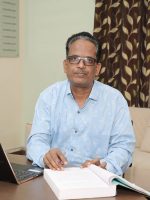
Dr. S. L. Nalbalwar
Director/Coordinator, IQAC
Archive
- Old Notifications of IQAC Constitution
- IQAC (2015-2016) Reports
- Mechanical Department Academic Audit Report (AAR)
- Electronics and Telecommunication Department Academic Audit Report (AAR)
- Electrical Department Academic Audit Report (AAR)
- Petrochemical Department Academic Audit Report (AAR)
- Minutes of Meeting: 21 Oct 2011 | 12 Nov 2011| 15 Noc 2011 | 25 Nov 2011| 9 Dec 2011| 23 Dec 2011| 2 Feb 2012 | 24 Feb 2012 | 14 March 2012 | 17 April 2012 |
